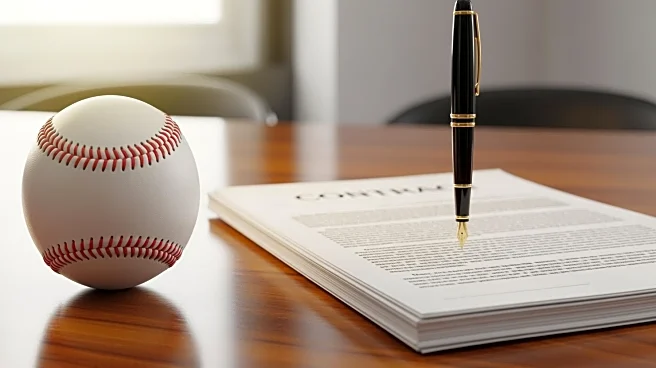WASHINGTON (AP) — The Trump administration's announcement this week that it would rescind the security clearances of 37 current and former national security officials was hardly an isolated act.
In ordering
the revocation of the clearances, President Donald Trump was turning to a favored retributive tactic that he's wielded — or at least tried to — against high-profile political figures, lawyers and intelligence officials.
The latest targets include officials who have served in the government across a range of agencies and positions, including on former President Joe Biden's national security team and at the National Security Agency. Some have been vocal critics of Trump and some have worked directly on matters that infuriated him, including an intelligence community assessment that said Russia interfered on his behalf in the 2016 presidential election.
Security clearances are important tools not only for current national security workers but also former ones who may need them to preserve access to sensitive information in their capacity as contractors.
The practical impact is unclear because it's not known how many of the 37 people newly singled out by Director of National Intelligence Tulsi Gabbard still have security clearances. But critics have decried the move as an act of retribution meant to chill dissent or make intelligence officials think twice before reaching conclusions, or engaging in work, that anger the president.
A look at some of the other people and industries affected by Trump's security clearance actions:
On his first day in office, Trump moved to revoke the clearances of more than four dozen former intelligence officials who in 2020 had signed on to a letter saying the Hunter Biden laptop saga bore the hallmarks of a “Russian information operation.”
The list includes prominent officials like James Clapper, director of national intelligence under former President Barack Obama; John Brennan and Leon Panetta, who both served as Obama’s CIA directors, and John Bolton, who was fired as Trump’s national security adviser during his first term.
The laptop storyline surfaced after The New York Post in 2020 reported that it had obtained a hard drive of a computer that Hunter Biden had dropped off at a Wilmington, Delaware, repair shop. The newspaper published communications related to the younger Biden's business dealings in Ukraine.
A subsequent letter from 51 former intelligence officials raised alarms about the provenance of emails reported by the Post. The signatories wrote that they didn’t know whether the emails were authentic but that their emergence has “all the classic earmarks of a Russian information operation.”
Trump's then-director of national intelligence and current CIA director, John Ratcliffe, contradicted that assessment by saying there was no intelligence to support the idea that Russia had anything to do with Hunter Biden’s laptop.
The FBI, which was conducting its own criminal investigations into the younger Biden, seemed to back up Ratcliffe’s statement by telling Congress in a letter that it had nothing to add to what he had said.
Hunter Biden was subsequently convicted of both tax and gun charges but was pardoned by his father.
Trump followed up with a separate order stripping Biden of his clearance, saying in February there was no need for him to continue receiving access to classified information. He also ended intelligence briefings for Biden in payback for Biden doing the same to him in 2021.
Top Biden administration officials saw their security clearances suspended in a March order, including former Vice President Kamala Harris and former Secretary of State Antony Blinken.
A host of Trump's perceived adversaries also were targeted in that same March order, including:
— Andrew Weissmann, a top prosecutor on the Justice Department special counsel team that during Trump's first term investigated ties between Russia and his 2016 presidential campaign.
— Alvin Bragg, the Manhattan district attorney whose office prosecuted Trump last year in connection with hush money payments in 2016.
— Mark Zaid, a prominent Washington national security lawyer whose clients have included an intelligence community whistleblower whose complaint initiated the first of two impeachment cases against Trump.
Zaid subsequently sued, calling it an act of “improper political retribution” that jeopardizes his ability to continue representing clients in sensitive national security cases.
Trump also made the suspension of clearances a key provision in a spate of executive orders this year targeting prominent law firms over legal work he disfavored or for their relationships to attorneys he did not like.
The actions also sought to bar firm attorneys from accessing federal buildings and threatened the cancellation of federal contracts.
Four firms — Perkins Coie, WilmerHale, Susman Godfrey and Jenner & Block — sued in federal court to block the enforcement of the orders and in each case prevailed in getting them struck down, leaving the clearances intact.










